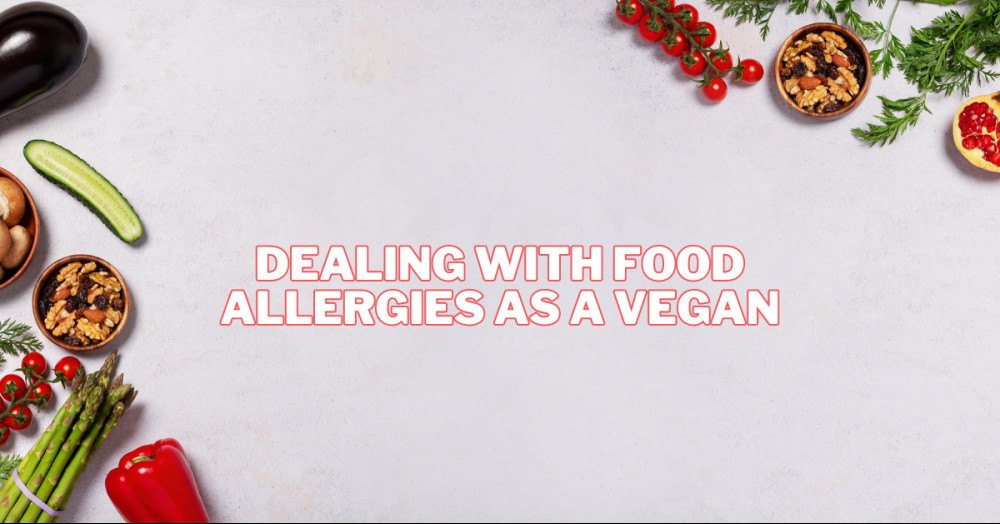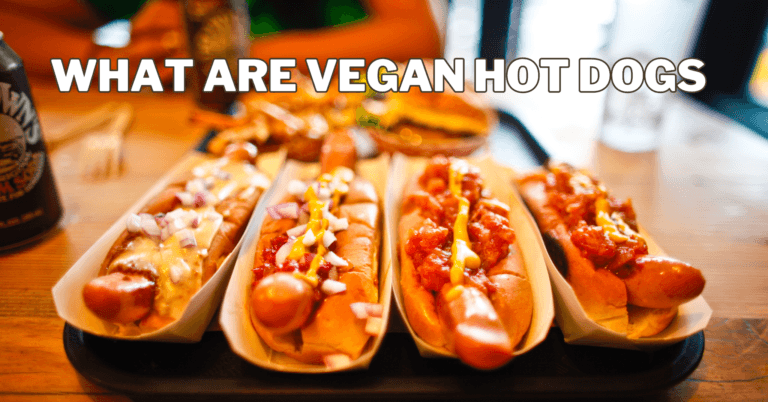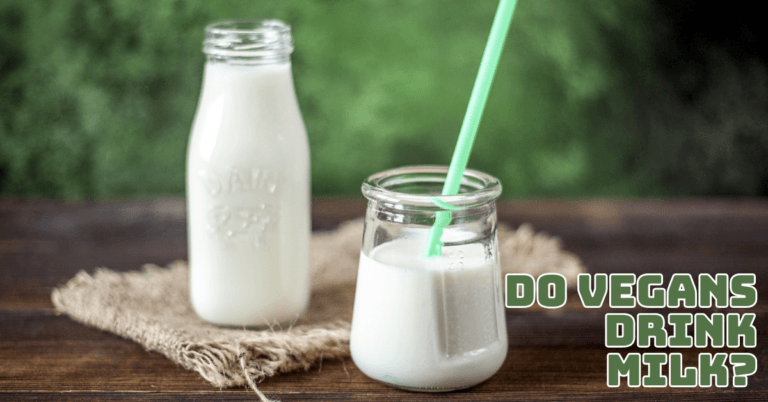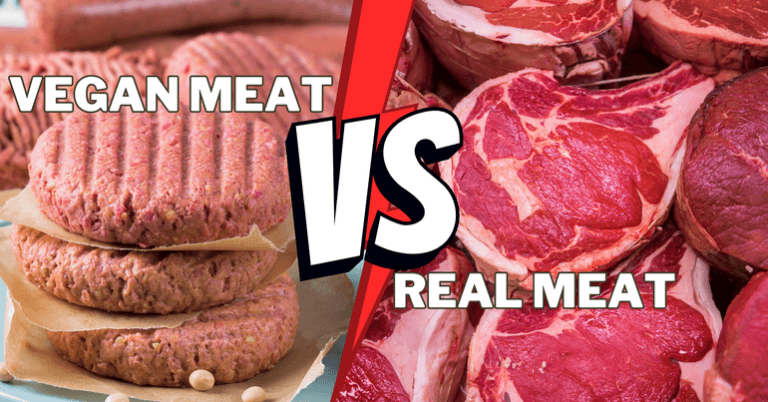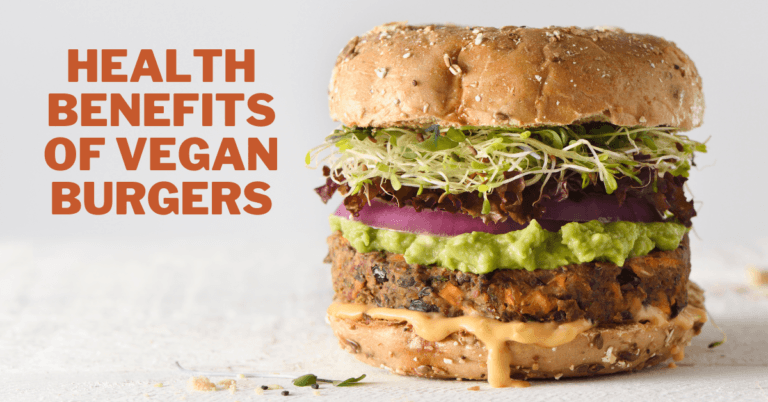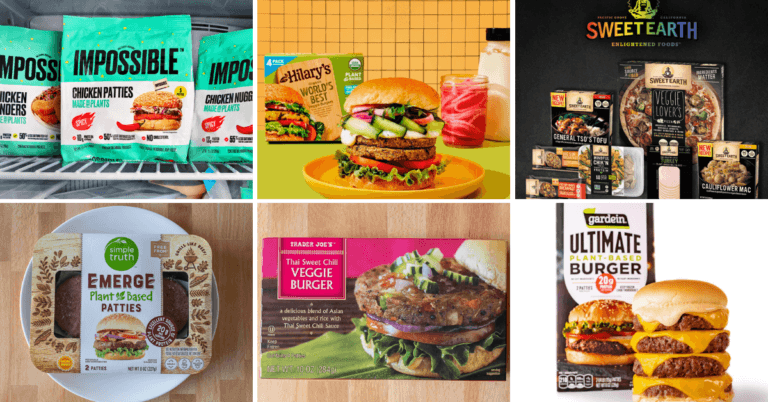Dealing With Food Allergies As A Vegan
Dealing With Food Allergies As A Vegan
Living with food allergies can be challenging but may seem even more daunting when combined with a vegan lifestyle.
However, navigating and enjoying a vegan diet while managing food allergies is possible with proper knowledge and strategies.
Whether you are allergic to common allergens like dairy, eggs, soy, wheat, or nuts, this article will provide valuable insights and practical tips to help you thrive as a vegan with food allergies.
From understanding food allergies, identifying allergens, finding suitable alternatives, and dining out safely, we will explore various topics to support your allergen-free vegan journey.
Let's delve into managing food allergies as a vegan and discover how to embrace a healthy, inclusive, and satisfying plant-based lifestyle while prioritizing your well-being and dietary needs.

Understand Food Allergies
Food allergies are immune system reactions to specific proteins in certain foods. The most common food allergens include dairy, eggs, soy, wheat, peanuts, tree nuts, fish, and shellfish.
When someone with a food allergy consumes an allergenic food, their immune system recognizes the protein as harmful and releases histamines and other chemicals, leading to various symptoms.
These symptoms can vary from mild, such as hives, itching, or digestive discomfort, to severe and life-threatening, such as difficulty breathing or anaphylaxis.
It is important to distinguish food allergies from intolerances, which are generally non-immune responses and involve problems digesting certain substances.
While intolerances can cause discomfort, they are not life-threatening, like food allergies.
Identifying food allergies is crucial for proper management. Allergen-specific blood tests or skin prick tests performed by healthcare professionals can help diagnose food allergies.
Once diagnosed, managing food allergies involves strict avoidance of allergens. It is important to carefully read food labels to identify potential allergens and be aware of hidden sources or cross-contamination risks.
Communication with food establishments is essential to ensure safe dining experiences, and carrying emergency medication, such as an epinephrine auto-injector, is vital in case of severe allergic reactions.
Managing food allergies adds a layer of complexity for individuals following a vegan lifestyle. Finding alternative sources of nutrients typically derived from allergenic foods is important.
For example, dairy can be replaced with plant-based milk alternatives like almond or soy milk, and eggs can be substituted with flaxseed or applesauce in baking recipes.
Planning meals, seeking guidance from healthcare professionals or registered dietitians, and experimenting with allergen-free recipes can help navigate a vegan diet while managing food allergies.
Vegan Alternatives For Common Allergens
For individuals with food allergies, finding suitable vegan alternatives to common allergens is crucial for maintaining a balanced and enjoyable plant-based diet.
Fortunately, there are numerous options available that cater to specific allergies. For those with a dairy allergy, there is a wide range of plant-based milk alternatives such as almonds, oats, coconut, and rice.
These can be used in recipes, poured over cereal, or enjoyed independently. For cheese alternatives, vegan options made from nuts, such as cashews or almonds, can create creamy spreads or melted toppings.
Eggs can be replaced in recipes by using various substitutes. For binding purposes, ingredients like mashed bananas, applesauce, or flaxseed mixed with water can work well.
In baking, applesauce, silken tofu, or commercially available egg replacers can be used to achieve the desired texture.
Soy is a common allergen, but fortunately, alternative protein sources are available. Chickpeas, lentils, quinoa, and hemp seeds are excellent plant-based protein sources.
These can be used in salads, stir-fries, soups, or made into patties for burgers. Alternatively,, soy-free meat substitutes, such as seitan (wheat gluten) or tempeh (fermented soybean), are available.
Wheat allergies can be accommodated using gluten-free grains like rice, quinoa, amaranth, or buckwheat. These grains can be used as substitutes in various dishes, including pasta, bread, and baked goods.
Gluten-free flour, such as almond flour, coconut flour, or oat flour, can be used instead of wheat flour in recipes, for individuals with nut allergies, sunflower, pumpkin, or hemp seeds can be used as alternatives.
They can be ground into spreads, added to granola or salads, or used as toppings in various dishes.
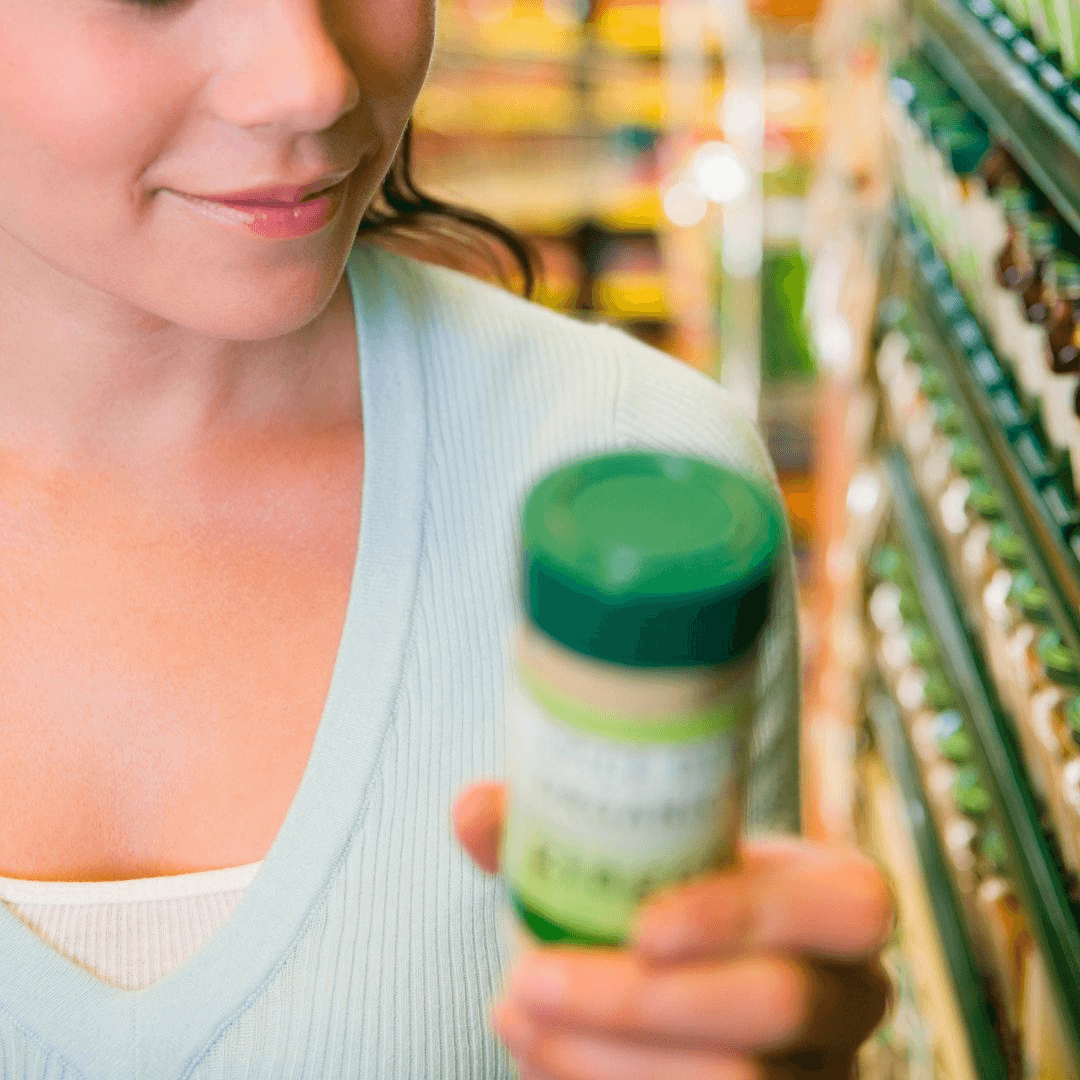
Reading Labels And Identifying Allergens
When dealing with food allergies as a vegan, it is crucial to become proficient in reading food labels to identify potential allergens. Here are some tips to help you navigate ingredient lists and make informed choices.
Start by familiarizing yourself with common allergens such as dairy, eggs, soy, wheat, nuts, and others you are allergic to.
Look for clear allergen labelling on packaged foods, as manufacturers often must disclose the presence of common allergens in their products.
Scan the ingredient list for specific allergens. Remember that allergens can sometimes be hidden under different names or within composite ingredients.
For example, dairy might appear as milk, lactose, whey, or casein. Eggs can be listed as albumin, lysozyme, or lecithin. Be aware of these alternative names to avoid consuming allergenic ingredients.
Look for precautionary statements such as “may contain” or “processed in a facility that also processes” allergens. While not mandatory, these warnings indicate a potential risk of cross-contamination, especially for individuals with severe allergies.
Avoid products with such warnings if you are highly sensitive to certain allergens.
In food preparation, take precautions to avoid cross-contamination. Use separate cutting boards, utensils, and appliances when preparing allergen-free meals. Clean surfaces thoroughly to eliminate any traces of allergenic ingredients.
When dining out, communicate your allergies clearly to the restaurant staff. Inquire about ingredients, food preparation methods, and potential cross-contamination risks.
It's important to advocate for your dietary needs and ensure the team understands your allergies' severity. Contact the manufacturer directly if you need clarification on a particular product or its ingredients.
Many companies have customer service lines or email addresses to address inquiries regarding allergens and potential cross-contamination.
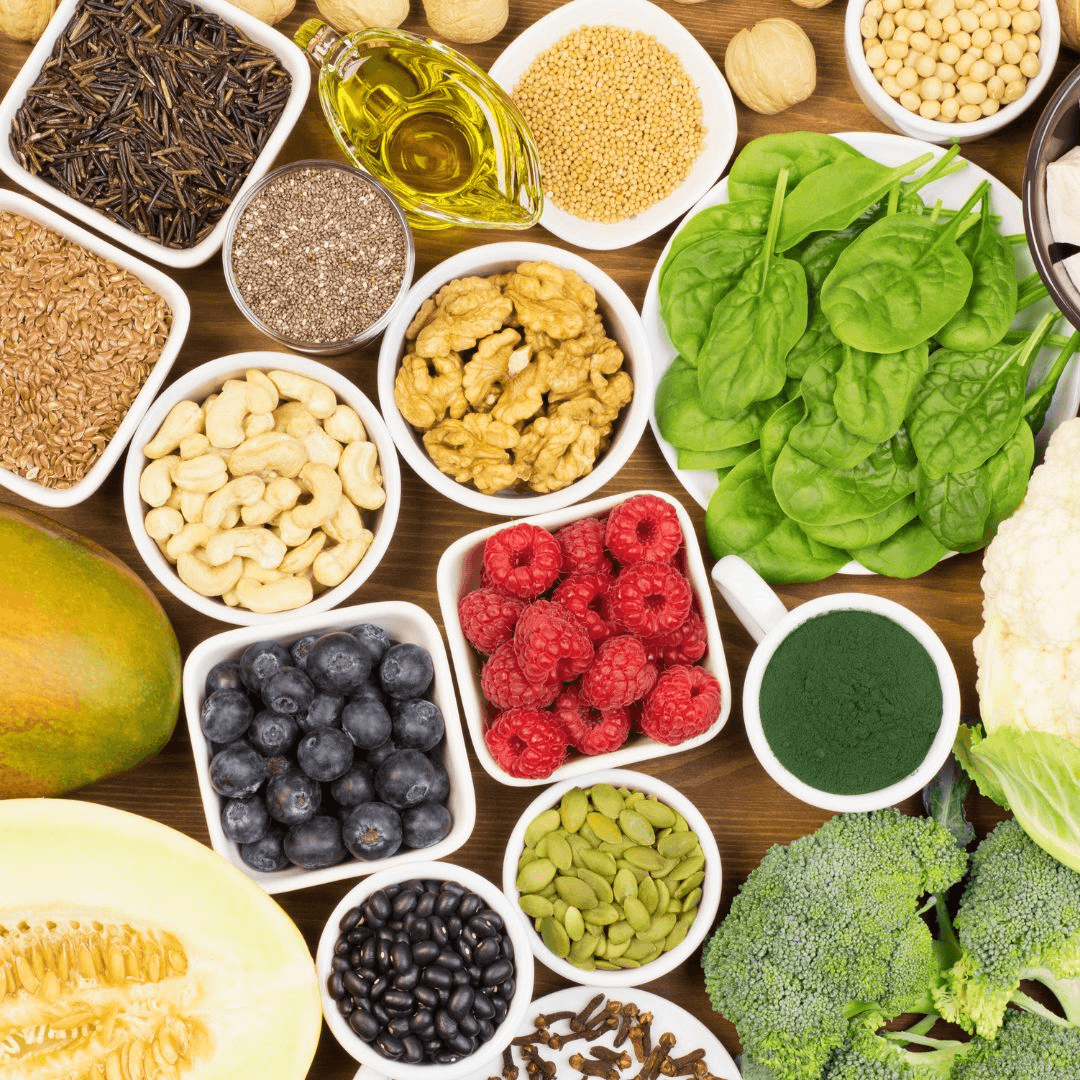
Nutrient Considerations
When dealing with food allergies as a vegan, it's important to ensure you're still meeting your nutritional needs while avoiding allergenic foods. Here are some key nutrients to consider and alternative food sources to incorporate into your diet:
1. Calcium
Dairy products are a common calcium source, but many plant-based alternatives are available. Opt for calcium-fortified plant milk, such as almond, soy, or oat. Other sources include tofu, tempeh, green leafy vegetables like kale and broccoli, and calcium-set tofu.
2. Protein
While eggs and dairy are rich protein sources, numerous plant-based options are available. Add legumes such as lentils, chickpeas, and black beans to your meals.
Quinoa, tofu, tempeh, and seitan are excellent plant-based protein sources. Nuts, seeds, and nut/seed butter can contribute as well.
3. Omega-3 Fatty Acids
Fish is a primary source of omega-3 fatty acids, but vegans can obtain them from plant-based sources. Flaxseeds, chia seeds, hemp seeds, and walnuts are rich in omega-3s.
Consider incorporating these into your diet or using flaxseed oil as a dressing or supplement.
4. Iron
Iron is abundant in plant-based foods. Legumes, such as lentils and chickpeas, are excellent sources. Dark leafy greens like spinach, kale, quinoa, and fortified cereals can also increase iron intake.
Enhance iron absorption by consuming vitamin C-rich foods, such as citrus fruits or bell peppers, alongside iron-rich meals.
By diversifying your diet and including various nutrient-dense plant-based foods, you can meet your nutritional needs while avoiding allergenic foods.
It's also beneficial to consult with a registered dietitian or nutritionist to help create a well-balanced meal plan tailored to your specific allergies and dietary preferences.
Remember, while focusing on nutrient-rich alternatives is important, listening to your body and seeking professional guidance to address potential nutrient deficiencies is crucial.
With proper planning and knowledge, you can maintain a healthy and well-rounded vegan diet, even with food allergies.
Dining Out With Food Allergies
Navigating restaurants as a vegan with food allergies can sometimes be challenging, but with some preparation and communication, you can enjoy a safe and delicious dining experience.
When making a reservation or speaking to the waiter, clearly communicate your dietary needs and food allergies. Explain your restrictions and ask about ingredient lists or possible cross-contamination risks.
Before heading out, research restaurants that offer vegan and allergen-friendly options. Check their menus online or call ahead to inquire about their ability to accommodate your dietary restrictions.
Some restaurants even have separate allergy-friendly menus or chefs who can modify dishes. When you arrive at the restaurant, don't hesitate to ask questions about ingredients, cooking methods, and potential cross-contamination.
It's important to ensure that the staff understands the severity of your allergies and the precautions needed.
If you find a dish close to your dietary requirements but contains allergens, don't hesitate to ask for modifications. Many chefs will accommodate dietary restrictions by substituting ingredients or altering cooking methods.
Cross-contamination can be a concern when dining out. Ask about the restaurant's practices to prevent cross-contact between allergens and non-allergenic foods.
Ensure that utensils, cutting boards, and grills are thoroughly cleaned before meal preparation.
To be safe, consider carrying snacks or a small meal if you can't find suitable options. This will prevent you from going hungry and allow you to enjoy the social aspect of dining out without worry.
Remember, advocating for your health and safety when dining out is essential. By communicating, researching, and being proactive, you can have an enjoyable dining experience while adhering to your vegan lifestyle and managing your food allergies.

Supporting A Vegan Lifestyle With Allergies
Maintaining a vegan lifestyle while managing food allergies can present additional challenges, but it is possible with careful planning and a supportive community. Here are some practical tips to help you navigate this journey:
1. Meal Planning
Plan your meals to ensure allergen-free vegan options are available. Create a list of go-to recipes that align with your dietary restrictions and stock up on allergy-friendly ingredients. This will make grocery shopping and meal preparation much easier.
2. Batch Cooking
Consider batch cooking on weekends or when you have extra time. Prepare large batches of allergen-free vegan meals and freeze them in individual portions. This way, you'll readily have quick and convenient options throughout the week.
3. Explore Alternative Ingredients
Embrace a variety of vegan ingredients to add flavour and nutrition to your meals. Experiment with different grains, legumes, vegetables, and herbs to create exciting, allergen-free dishes.
Get creative with substitutes like coconut milk, nut-free spreads, or gluten-free flours to recreate your favorite recipes.
4. Seek Support
Connect with the vegan community and individuals with similar dietary restrictions. Join online forums, social media groups, or local vegan meetups to exchange ideas, share recipes, and find support.
Learning from others who have successfully navigated a vegan lifestyle with allergies can be invaluable.
5. Read Blogs and Cookbooks
Explore vegan food blogs and cookbooks focusing on allergy-friendly recipes. Many talented individuals have developed delicious vegan recipes specifically designed for those with food allergies.
These resources can provide inspiration, guidance, and alternatives for allergen-free vegan meals.
6. Consult A Registered Dietitian
If you have complex dietary needs or concerns about meeting your nutritional requirements, consider consulting a registered dietitian specializing in vegan diets and food allergies.
They can provide personalized guidance and ensure you get all the necessary nutrients while managing your allergies.
Remember, listening to your body and prioritizing your health is essential. With careful planning, creativity in the kitchen, and a supportive vegan community, you can thrive on a vegan diet while managing your food allergies.
Allergy-Friendly Recipes
Swap traditional wheat-based pasta for gluten-free options like brown rice or chickpea pasta. Pair it with a homemade marinara sauce with fresh vegetables and herbs.
Try marinated tempeh as a protein-rich alternative for those with soy allergies. Slice, marinate in your favorite flavours, and bake or pan-fry it perfectly.
Create a delicious and nutrient-packed snack by combining gluten-free oats, seeds (like sunflower or pumpkin), dried fruits, and a binder such as maple syrup or date paste.
Roll them into bite-sized balls for a convenient and allergy-friendly snack. Use coconut milk or cashew cream as a creamy base for soups instead of dairy products.
Roasted butternut squash soup or creamy mushroom soup can be easily made without dairy or other allergens.
Replace eggs in baked goods using flaxseed meal or chia seeds mixed with water as a binder. You can create delicious vegan and allergen-free muffins, cookies, and cakes.
Prepare a dairy-free cheese sauce using nutritional yeast, plant-based milk, and a combination of spices and seasonings. This versatile sauce can be used for macaroni and cheese, nachos, or as a dip for vegetables.
Remember to always to double-check ingredient labels to ensure they are free from allergens. Feel free to modify these recipes based on your allergies or dietary needs.
These allergy-friendly vegan recipes allow you to enjoy many delicious and satisfying meals while avoiding common allergens.

Seek Professional Advice
While the information in this article can serve as a helpful starting point, it is crucial to remember that every individual's dietary needs and allergies are unique.
Consulting with healthcare professionals, such as registered dietitians or allergists, is highly recommended for personalized guidance and support in managing a vegan lifestyle with food allergies.
Registered dietitians specializing in plant-based nutrition can provide valuable insight into crafting a well-balanced vegan diet that meets your nutritional needs while avoiding allergens.
They can assess your allergies, review your dietary habits, and develop a customized meal plan to ensure you get nutrients.
Allergists can help you identify specific allergens and provide guidance on allergy management and prevention.
They can perform comprehensive allergy testing to pinpoint allergens accurately and offer advice on navigating potential cross-reactivity or hidden sources of allergens in foods.
Working with professionals who understand both veganism and food allergies is crucial. They can offer specialized knowledge, address your concerns, and provide evidence-based recommendations tailored to your unique situation.
They can also monitor your health and guide you through potential challenges, ensuring you maintain a healthy vegan lifestyle while managing your food allergies effectively.
Remember that healthcare professionals are there to support you and provide the most accurate and up-to-date information.
They can help you make informed decisions about your dietary choices and ensure that you meet your nutritional needs while managing your allergies effectively.
During consultations with healthcare professionals, being open and transparent about your vegan lifestyle and food allergies is important.
This will allow them to provide the most relevant advice and recommendations to support your well-being.
With their expertise and your commitment, you can confidently navigate the intersection of a vegan lifestyle and food allergies, ensuring a safe and nourishing dietary journey.
Sharing Experiences And Support
Creating a platform for readers to share their experiences in managing food allergies as a vegan can foster a sense of community and provide valuable support.
Encouraging engagement and interaction allows individuals to connect with others who understand their unique challenges and can offer empathy, advice, and encouragement.
This can be facilitated through online support groups, forums, or social media communities dedicated to veganism and food allergies.
These platforms can be a safe space for individuals to discuss their journeys, exchange tips and recipes, and find solace in knowing they are not alone.
Providing educational materials, reputable websites, and recommended books can further empower individuals to educate themselves about veganism and food allergies.
The sharing of experiences and support from like-minded individuals can inspire others, foster a sense of belonging, and reinforce the notion that it is possible to navigate a vegan lifestyle while managing food allergies successfully.
Conclusion
In conclusion, managing food allergies while following a vegan lifestyle requires attentiveness, knowledge, and resourcefulness.
With proper planning, education, and support, individuals can successfully embrace a vegan lifestyle while managing their food allergies effectively.
Everyone's journey is unique, and it is essential to prioritize personal well-being and consult with healthcare professionals for personalized advice.
By taking proactive steps and utilizing available resources, individuals can enjoy a vibrant, allergen-free vegan lifestyle that aligns with their values and promotes optimal health.
I trust you enjoyed this article about Dealing With Food Allergies As A Vegan. Please stay tuned for more blog posts to come shortly. Take care!
JeannetteZ
>>>Please click here to read my Vegan Travel Guides To World Destinations<<<
>>>Want To Learn How To Create Delicious, Cruelty-Free, Healthy AND 100% Vegan Meals? Try These Awesome Vegan Cooking Courses With A Free 7-DAY MEMBERSHIP<<<
Your Opinion Is Important To Me
Ideas? Thoughts? Questions? I would love to hear from you. Please leave me your questions, experience, and remarks about the Dealing With Food Allergies As A Vegan article in the comments section below. You can also reach me by email at Jeannette@LivingTheVeganLifestyle.org.
Disclosure
This post may contain affiliate links. I earn from qualifying purchases as an Amazon Associate and other affiliate programs. Please read my full disclosure.
Here are links to some of my favourite articles:
Volunteering With The Vegan Society
A Vegan Guide To Folkestone, Great Britain
Vegan Mindfulness And Mental Well-Being
Best Vegan Fitness Tips And Workout Routines
Best Eco-Friendly Cleaning Hacks
Potential Health Benefits Of Veganism

